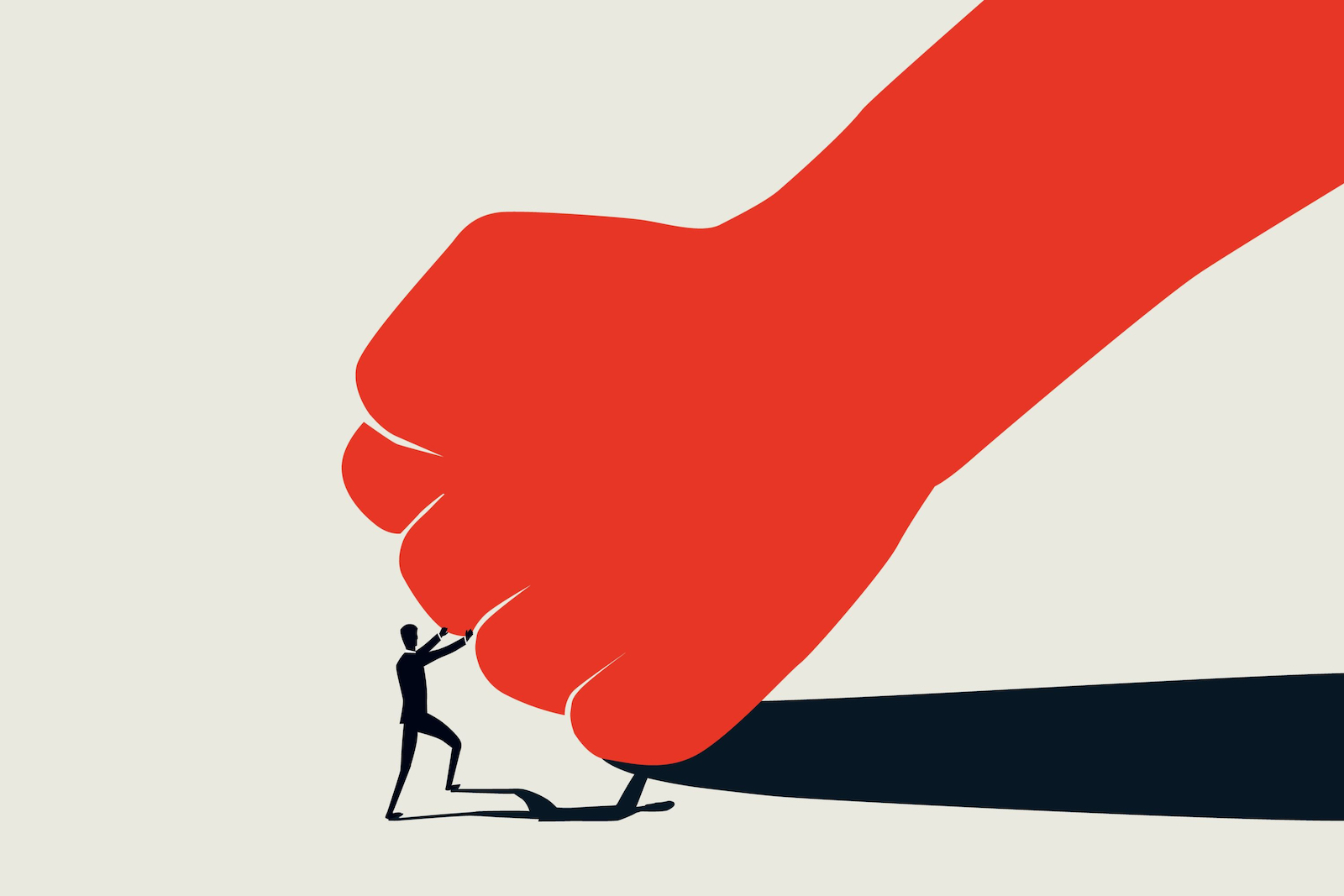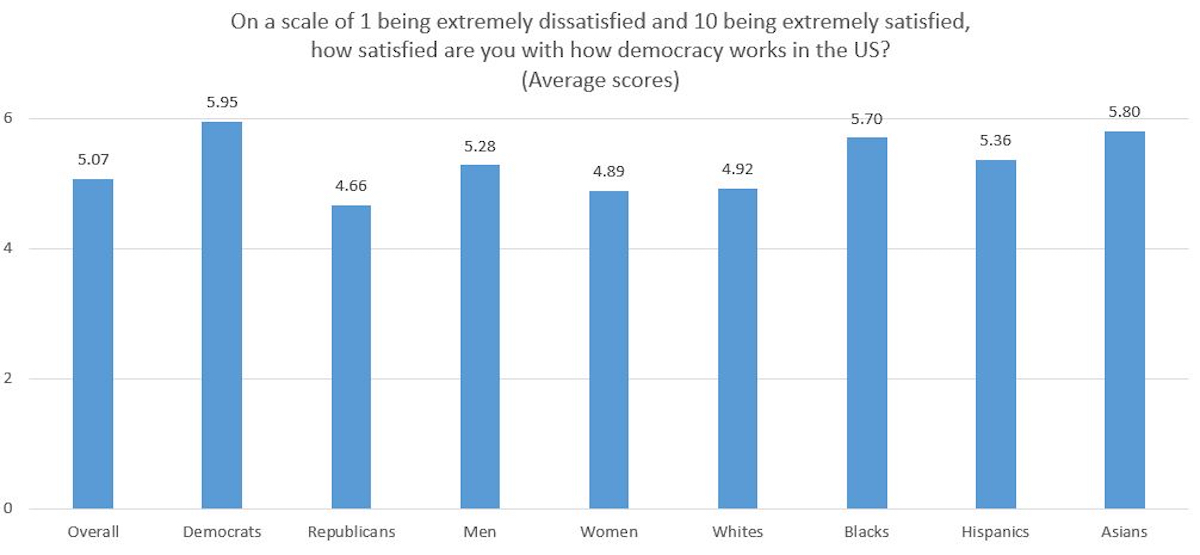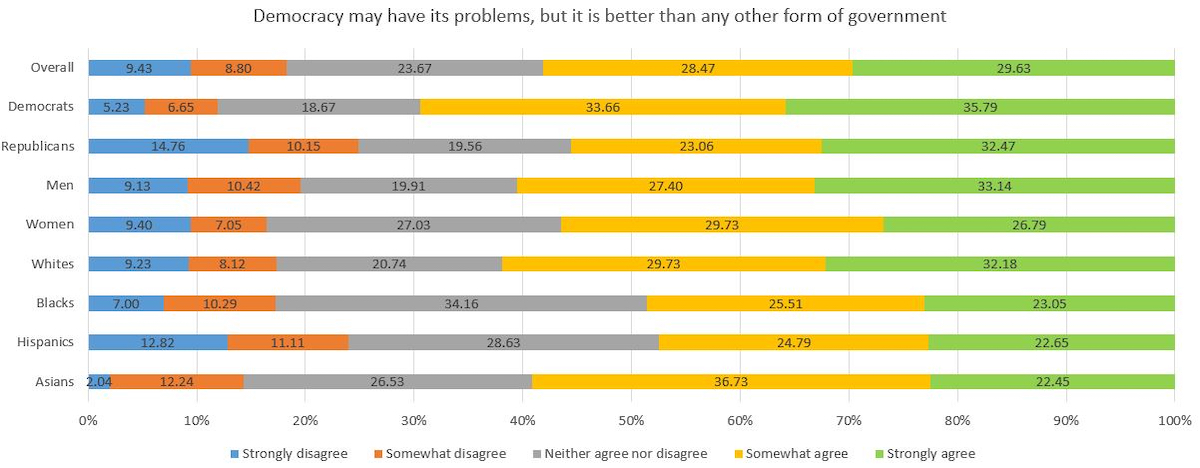
Politics
Is Democratic Satisfaction in Peril in the U.S.?
Democratic rule requires tacit public support. However, increasing concerns about democratic institutions in the U.S., including declining trust in the electoral process, threaten this tacit consent. In the aftermath of the 2020 presidential election, we saw what happens when electoral losers turn to alternative means to address their grievances.
Other democracies see similar disaffection, with a Pew Research poll from 2020 finding a median of 52% of people were dissatisfied with the way democracy functions in their country, with higher rates among lower-income respondents. Such discontent can be fuel for the rise of illiberal forces and the risk of gradual authoritarianism.
Our survey work finds tepid satisfaction with how democracy works in the U.S., despite majorities still claiming that it is the best form of government. While separating short-term frustrations from endemic ones may be difficult, we should not underestimate the potential challenge of shifting U.S. public perceptions to continued democratic stability.
American public trust in government has been declining since the 1960s, however, since 2007, the highest percentage of people saying that they trust the government has never exceeded 30%. One factor promoting this decline may be the 24-hour news cycle focus on negative news, further exacerbated by the sharing on social media within ideological silos.
Political science research on losers’ consent consistently finds supporters of winning parties and candidates to have higher satisfaction and trust in political institutions and in democracy as a whole compared to supporters of electoral losers. This makes intuitive sense in that electoral losers not only should expect policies enacted that contrast with their preferences but are also primed by partisan media outlets to focus on these differences. Cross-national research shows the gap between the perceptions of winners and losers differs across types of electoral systems, but as long as electoral losers feel that their preferred party or candidate can win in the future, such gaps do not necessarily threaten democratic stability.

However, if the public loses faith in democracy, this is far more concerning as this can spur support for addressing grievances outside of democratic institutional rules, for example through violence or the support of populist messaging and creeping authoritarianism. A 2022 Washington Post-UMD survey found 34% of Americans surveyed answered that they felt violence against the government can sometimes be justified, this increased from the 16% of support in 2010, with now 40% of Republicans and 23% of Democrats stating that violence is acceptable.

To address views on American democracy, we conducted a national web survey from June 29 through July 11 via Qualtrics with quota sampling for age, gender, and geographic region. We asked 1,728 Americans first to rate satisfaction with democracy on a scale of 1-10. Overall, we find tepid satisfaction with democracy, with an average score of 5.07, with Democrats evaluating democracy over a point higher than that of Republicans (5.95 vs. 4.66), consistent with losers’ consent research.
After political party, we find that women and whites exhibit the lowest rates of satisfaction. The low rate of satisfaction by women may be influenced by recent events such as the U.S. Supreme Court overturning Roe v. Wade, while low satisfaction among whites could be attributed to “white rage” or perceived loss of status in an increasingly diverse America despite higher descriptive representation.
We also asked respondents to evaluate the following statement on a five-point Likert scale (strongly disagree to strongly agree): “Democracy may have its problems, but it is better than any other form of government.” Clear majorities agreed that democracy was the best form of government (58.1%), with considerable deviation between Democrats (69.45%) and Republicans (55.53%), with majorities among all groups but Blacks (48.56%) and Hispanics (47.44%).
That majorities still view democracy as the best form of government may be comforting, but that a sizable population, nearly one in five respondents and nearly one in four Republicans and Hispanics, disagreed should be cause for alarm. How to respond to this challenge requires first understanding the factors undermining democratic evaluations, separating out short-term frustrations from broader concerns about transparency and fairness.
For example, a Pew 2022 survey links economic evaluations with democratic satisfaction, with 71% of adults saying that strengthening the economy was the biggest priority. However, addressing economic insecurities does little to address the underlying willingness to accept democratic norms of behavior. Actors in U.S. democratic institutions must place a larger emphasis on public domestic perception of democracy in America to ensure domestic stability and security.


